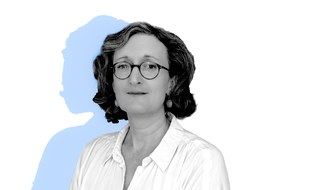OPEN SPACE | Peer Talks
Teilen Sie Ihr Wissen, lernen Sie voneinander, vernetzen Sie sich!
Entdecken Sie die Möglichkeiten der wissenschaftlichen Vernetzung und nehmen Sie an unserem OPEN SPACE | Peer Talks teil.
Teilen Sie Ihre (wissenschaftliche) Expertise zu einem Thema Ihrer Wahl und tauschen Sie sich mit interessierten Doktorand:innen und Postdocs aus.
Sie möchten ein Thema vorstellen?
Schreiben Sie uns eine E-Mail an:
Für Ihren Vortrag stellen wir Ihnen einen Zoom-Raum zur Verfügung.
Unsere Peer Talks werden nicht aufgezeichnet.
Vergangene PEER TALKS
Der Klimawandel ist ein globales Problem und seine Auswirkungen sind allgegenwärtig. Aber was sind die psychischen Auswirkungen des Klimawandels auf Menschen? Laut Studien sind Menschen in Ländern mit niedrigem Einkommen und Angehörige von Minderheiten besonders gefährdet. Was können wir tun, um ihnen zu helfen? Der Klimawandel beeinflusst die psychische Gesundheit auf direkte, indirekte und physische Weise. Doch was bedeutet das genau? Wie können wir weltweit und lokal Maßnahmen ergreifen, um diese Auswirkungen zu minimieren?
Es ist dringend erforderlich, dass auch die psychiatrische Ausbildung und Maßnahmen in diesem Bereich gezielt neu gedacht und angepasst werden müssen. Wie kann das erreicht und welche Schritte müssen unternommen werden, um die psychische Gesundheit weltweit zu verbessern? Dieser Vortrag bietet einen umfassenden Einblick in die Auswirkungen des Klimawandels auf die psychische Gesundheit und was wir tun können, um diese Herausforderungen zu bewältigen.
Sie möchten mitdiskutieren?
Melden Sie sich einfach via Zoom (Link) an.
Talk & FAQ in Englisch
Über die Referentin
Ruta Karaliuniene ist Fachärztin für Psychiatrie und Psychotherapie. Derzeit arbeitet sie an ihrer Doktorarbeit am Zentrum für Frühprävention psychischer Störungen (Universitätsklinikum Carl Gustav Carus, Dresden). Ihre jüngste Veröffentlichung über den Klimawandel und die psychische Gesundheit von Kindern und Jugendlichen stellt sie in diesem Vortrag vor.
Nachhaltigkeit in der Forschung meint nicht nur den Verzicht auf Flugreisen zu Konferenzen oder die Vermeidung von Labormüll. Auch Open Science trägt dazu bei. Um sicherzustellen, dass Forschungsergebnisse möglichst aussagekräftig und langlebig sind, gibt es Maßnahmen wie die Registered Reports und die Bereitstellung von Datensätzen zur weiteren Nutzung.
In diesem Talk stellen die Organisatorinnen das Konzept der ReproducibiliTea Journal Clubs sowie Werkzeuge der Open-Science-Bewegung vor. Der Journal-Club ist Teil der weltweiten ReproducibiliTea-Bewegung.
Neugierig?
Melden Sie sich einfach via Zoom (Link) an.
Talk & FAQ in Englisch
Über die Referentinnen
Verena Krall
Studierte Physik in Tübingen und Oulu (Finnland) und promoviert aktuell am cfaed. Zu ihren aktuellen Forschungsinteressen gehören die Auswirkungen von Netzwerktopologien auf die Mobilitätsdynamik.
Judith Herbers
Ist Psychologin und promoviert aktuell an der Professur Methoden der Psychologie, der TU Dresden. Sie beteiligt sich an der Open Science Initiative der Fakultät Psychologie und ist gemeinsam mit Verena Krall Organisatorin des Dresdnder ReproducibiliTea Journal Clubs.
An wen richtet sich der Talk?
An alle Promovierende und Postdocs, die sich mit der Frage auseinandersetzen wollen, wie gute Wissenschaft in Zukunft aussehen soll.
Es gibt die Welt und es gibt die Sprache, und wenn wir es wollen, können wir sie völlig voneinander trennen und verhindern, dass sich die „Dinge der Welt“ und die "Dinge der Sprache“ miteinander vermischen. Richtig? Nun, denken wir an Wittgensteins Aussage, dass „die Grenzen meiner Sprache die Grenzen meiner Welt bedeuten“. Was sollen wir davon halten? Vielleicht, dass die Menschen, sofern sie nicht den gleichen Wortschatz haben, auch nicht die gleiche Welt teilen?
Was, wenn wir diese Behauptung auf den Kopf stellen? Was, wenn wir vorschlagen, dass „die Grenzen meiner Welt die Grenzen meiner Sprache sind“? Klingt das vernünftiger? Vielleicht, aber dann müssen wir akzeptieren, dass es unmöglich ist, über nicht wahrnehmbare Dinge zu sprechen. Aber was geschieht dann mit der Religion, wenn wir nicht über Gott oder die Seele sprechen können? Was geschieht dann mit der Wissenschaft? Sind ihre Theorien nicht auf nicht wahrnehmbaren Phänomene wie Quarks und Spins aufgebaut? Kann die Wissenschaft nicht über die Welt sprechen?
Wie können wir über diese Fragen reflektieren? Ein guter erster Schritt sollte darin bestehen, die Beziehungen zwischen Begriffen, Sprache und der Welt zu klären. Genau das ist die große Herausforderung, der sich Vortrag widmen wird.
Neugierig?
Melden Sie sich einfach via Zoom (Link) an.
Talk & FAQ in Englisch
Über den Referenten
Dr. Ignacio Gonzalez Martinez ist Physiker und Forscher und arbeitet am IFW-Dresden an der Entwicklung von Methoden zur Synthese von Nanostrukturen im Transmissionselektronenmikroskop. In seiner Freizeit beschäftigt er sich mit verschiedenen Bereichen der Philosophie, wobei er einen besonderen Schwerpunkt auf die Sprachphilosophie und die Erkenntnistheorie legt.
An wen richtet sich der Talk?
An alle, die sich dafür interessieren, was Sprache zu einem effektiven, aber begrenzten Mittel der Kommunikation und des Verstehens macht.
Cynefin (ausgesprochen kun-ev'in) ist ein walisisches Wort, das keine direkte Entsprechung im Englischen hat. Es bezieht sich auf einen Ansatz, der von Dave Snowden, einem walisischen Forscher und Unternehmensberater, während seiner Tätigkeit bei IBM entwickelt wurde. Cynefin soll Führungskräften unterstützen, Herausforderungen zu verstehen und gute Entscheidungen zu treffen.
In diesem Vortrag erfahren Sie, wie das Cynefin Framework funktioniert und wie Sie es in Ihrer Forschung anwenden können.
Neugierig?
Melden Sie sich ganz einfach via Zoom an (Link).
Talk & FAQ in Englisch
Über den Referenten
Aydin Homay ist Senior Software Architect bei Siemens Healthineers im Projekt Krebsbehandlung mit Protonentherapie. Er promoviert außerdem an der TU Dresden über die Entwicklung flexibler industrieller Automatisierungssysteme.
An wen richtet sich der Talk?
Doktoranden und Postdocs aus den Bereichen Informatik, Wissensmanagement, Sozialwissenschaften, Verfahrenstechnik und verwandten Gebieten.
 © Claudia Wittmann
© Claudia Wittmann
Stellvertretende Sachgebietsleiterin
NameAngela Böhm M.A.
Referentin Karriereentwicklung, TUD Young Investigator, ÖA
Eine verschlüsselte E-Mail über das SecureMail-Portal versenden (nur für TUD-externe Personen).
Besuchsadresse:
Graduiertenakademie Mommsenstraße 7
01069 Dresden
Sprechzeiten:
Termine nach Vereinbarung

